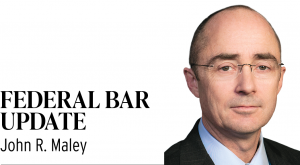Subscriber Benefit
As a subscriber you can listen to articles at work, in the car, or while you work out. Subscribe Now Federal courts frequently address discovery disputes, with many addressing discoverability and inadequate objections. A prime example is Grimes v. Keramida Env’t, Inc., 2023 U.S. Dist. LEXIS 147039 (Aug. 22, 2023), in which Magistrate Judge Mark Dinsmore granted a motion to compel production of documents and invited the movant to file any motion for fees within two weeks.
Federal courts frequently address discovery disputes, with many addressing discoverability and inadequate objections. A prime example is Grimes v. Keramida Env’t, Inc., 2023 U.S. Dist. LEXIS 147039 (Aug. 22, 2023), in which Magistrate Judge Mark Dinsmore granted a motion to compel production of documents and invited the movant to file any motion for fees within two weeks.
Plaintiff brought an FLSA action, and defendant sought various records through five document requests. Plaintiff objected to all five requests, stating that they are irrelevant, not proportional to the needs of the case, harassing, overly broad and unduly burdensome. After addressing the general discovery standard, Judge Dinsmore turned to the defense objections, writing: “A party may seek an order to compel discovery when an opposing party provides evasive or incomplete responses to interrogatories. Fed. R. Civ. P. 37(a)(3), (4). Although the burden of demonstrating relevance is on the party seeking discovery, once relevance has been shown, it is the objecting party’s obligation ‘to show why a particular discovery request is improper.’ Kodish v. Oakbrook Terrace Fire Protection Dist., 235 F.R.D. 447, 449-50 (N.D. Ill. 2006). The objecting party must show with specificity that the request is improper. Graham v. Casey’s General Stores, 206 F.R.D. 251, 254 (S.D. Ind. 2002); Cunningham v. Smithkline Beecham, 255 F.R.D. 474, 478 (N.D. Ind. 2009); In re Aircrash Disaster Near Roselawn, Inc. Oct. 31, 1994, 172 F.R.D. 295, 307 (N.D. Ill. 1997).”
Judge Dinsmore next turned to the subject of general objections, explaining, “Thus, general objections to discovery requests that merely recite boilerplate language without explanation do not meet this burden, and courts within the Seventh Circuit consistently overrule them or entirely disregard such. See Novelty, Inc. v. Mountain View Mktg., 265 F.R.D. 370, 375 (S.D. Ind. 2009) (‘‘general objections’ made without elaboration, whether placed in a separate section or repeated by rote in response to each requested category, are not ‘objections’ at all—and will not be considered’). Indeed, ‘[m]aking general objections is a dangerous practice, as the party who offers such general objections runs the risk of having them summarily denied.’ Avante Int’l Tech., Inc. v. Hart Intercivic, Inc., 2008 U.S. Dist. LEXIS 39100, 2008 WL 2074093, at *2 (S.D. Ill. 2008).”
Regarding objections based on undue burden, Judge Dinsmore wrote: “[a] party resisting discovery on the basis of undue burden must show with specificity that the discovery requests a[t] issue are objectionable. See, e.g. Fair Oaks Dairy Farms, 2012 U.S. Dist. LEXIS 107613, 2012 WL 3138108 at *3 (‘Dairy Farms has not pointed to a single discovery request that it alleges would be overly burdensome. … Dairy Farms simply states that the discovery would be burdensome and expensive without greater detail. The insufficiencies are fatal to its request.’); Bitler Inv. Venture II, LLC v. Marathon Ashland Petro. LLC, 2007 U.S. Dist. LEXIS 29159, 2007 WL 1164970 at *4 (N.D. Ind. Apr. 18, 2007) (quotation omitted) (‘[I]f a party is to resist discovery as unduly burdensome, it must adequately demonstrate the nature and extent of the claimed burden by making a specific showing as to how disclosure of the requested documents and information would be particularly burdensome.’). This showing typically requires affidavits or other evidence supporting a party’s assertions of burden. See, e.g., Jenkins v. White Castle Mgmt. Co., 2014 U.S. Dist. LEXIS 106100, 2014 WL 3809763 at *2 (N.D. Ill. Aug. 4, 2014) (‘What is required is affirmative proof in the form of affidavits or record evidence.’); Burton Mech. Contractors, Inc. v. Foreman, 148 F.R.D. 230, 233 (N.D. Ind. 1992) (‘An objecting party must specifically establish the nature of any alleged burden, usually by affidavit or other reliable evidence.’).”
Applying these standards, Judge Dinsmore determined the plaintiff failed in his burden to show a lack of proportionality. He wrote: “Simply making ‘a reflexive invocation of the same baseless, often abused litany that the requested discovery is vague, ambiguous, overly broad, unduly burdensome or that it is neither relevant nor reasonably calculated to lead [*8] to the discovery of admissible evidence’ is not enough. Burkybile v. Mitsubishi Motors Corp., 2006 U.S. Dist. LEXIS 57892, 2006 WL 2325506 at *6 (N.D. Ill. 2006) (internal citations omitted). Plaintiff has failed to meet his burden of demonstrating that the requests are not proportional.”
Save the dates: The author will lead an ICLEF Masters Series on Advanced Federal Practice on the afternoon of June 28 and the morning of June 29 at Notre Dame, with sessions led by Judge Damon Leichty, Magistrate Judge Kellie Barr and Kathleen Anderson. It will include six hours of CLE, with a reception on June 28 at Notre Dame Stadium. Space is limited and registration is open — see ICLEF.org.
Also, save 1:30-4:45 p.m. on Dec. 13 for the annual Federal Civil Practice Seminar featuring Indiana federal judges.•
__________
John Maley — [email protected] — is a partner with Barnes & Thornburg LLP practicing federal and state litigation, employment matters and appeals. He clerked for Judge Larry McKinney from 1988-90, serves as chair of the Local Rules Advisory Committee, S.D. Indiana, and is a member of the Local Rules Advisory Committee, N.D. of Indiana, and the Seventh Circuit’s Civil Pattern Jury Instructions Committee. Opinions expressed are those of the author.
Please enable JavaScript to view this content.
